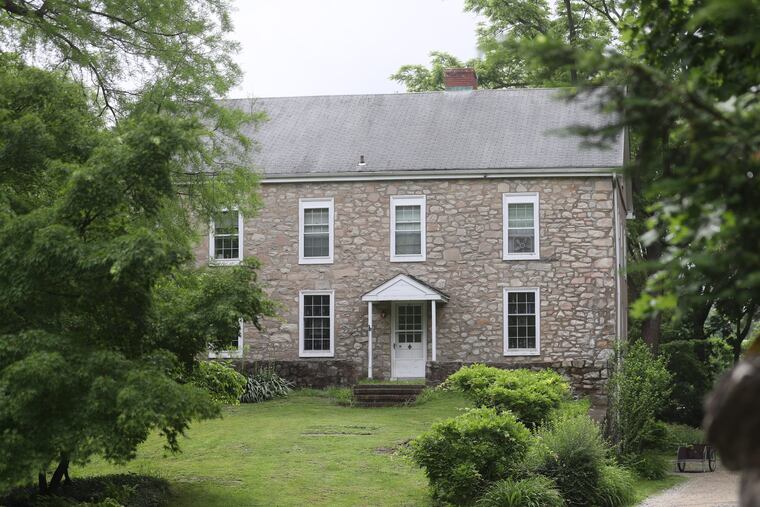Developer drops plans for townhouses at Underground Railroad site, but several others want it
The 10-acre property was formerly owned by an abolitionist who helped enslaved people who had escaped bondage. Under the proposal for townhouses, historic buildings would have remained standing.

A developer has withdrawn plans to build 67 townhouses on a Montgomery County farm that served as a significant stop on the Underground Railroad, but other developers are interested in buying the historically designated site.
Developer K. Hovnanian Homes has ended its five-year-old agreement of sale for the 10-acre property, located in Whitemarsh Township and listed on the National Register of Historic Places. The property was owned in the 19th century by George Corson, who hosted abolitionist rallies and helped people who had escaped bondage. Historic buildings on the site, including the barn known as Abolition Hall because of the antislavery work done there and the famous abolitionists it hosted, were to remain standing as part of the plan.
Last week, Whitemarsh’s board of supervisors announced that the developer had abandoned plans for a townhouse community. The township has wanted to own the property for years and is among those interested in purchasing it, said Laura Boyle Nestor, chair of the board.
“Personally, I find that history of Abolition Hall critical to maintain,” she said. Whitemarsh is “pursuing all options” to buy the land and preserve both the history and the open space, she said.
The township previously attempted to buy the property and commissioned two appraisals, but state statutes do not allow Whitemarsh to offer above what it was told the property was worth. The property owners rejected the township’s proposals and chose to look elsewhere, Boyle Nestor said.
But in October 2018, the township approved conditional use of the property, which she said could raise its value. Whitemarsh is considering commissioning another appraisal.
“We are in a unique position now to try again,” Boyle Nestor said. “My hope is that the [owners are] going to be more open-minded to having conversations about various options.... I’m hopeful that the [owners] would be in line with the tenor of our world at the moment to work together.”
Hovnanian did not give the township a reason for pulling out, she said, and the developer did not respond to a request for comment.
Sydelle Zove, head of Friends of Abolition Hall, a group that opposed the plan for townhouses over concern for the integrity of the site, said in an email to supporters that the fight is not over.
“We continue to believe that a better plan is within reach, and we hope that any developer considering a deal with the [property owners] will appreciate the extraordinary history of this homestead,” she wrote.